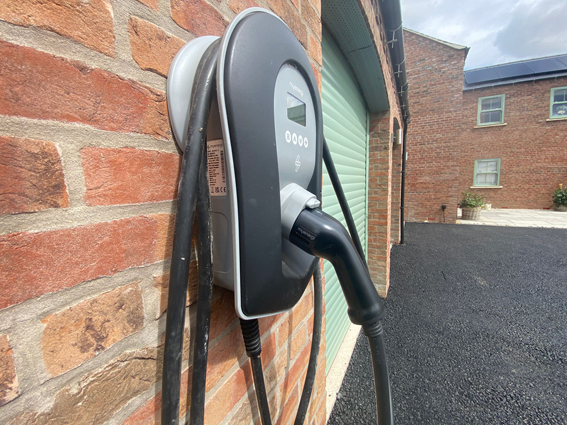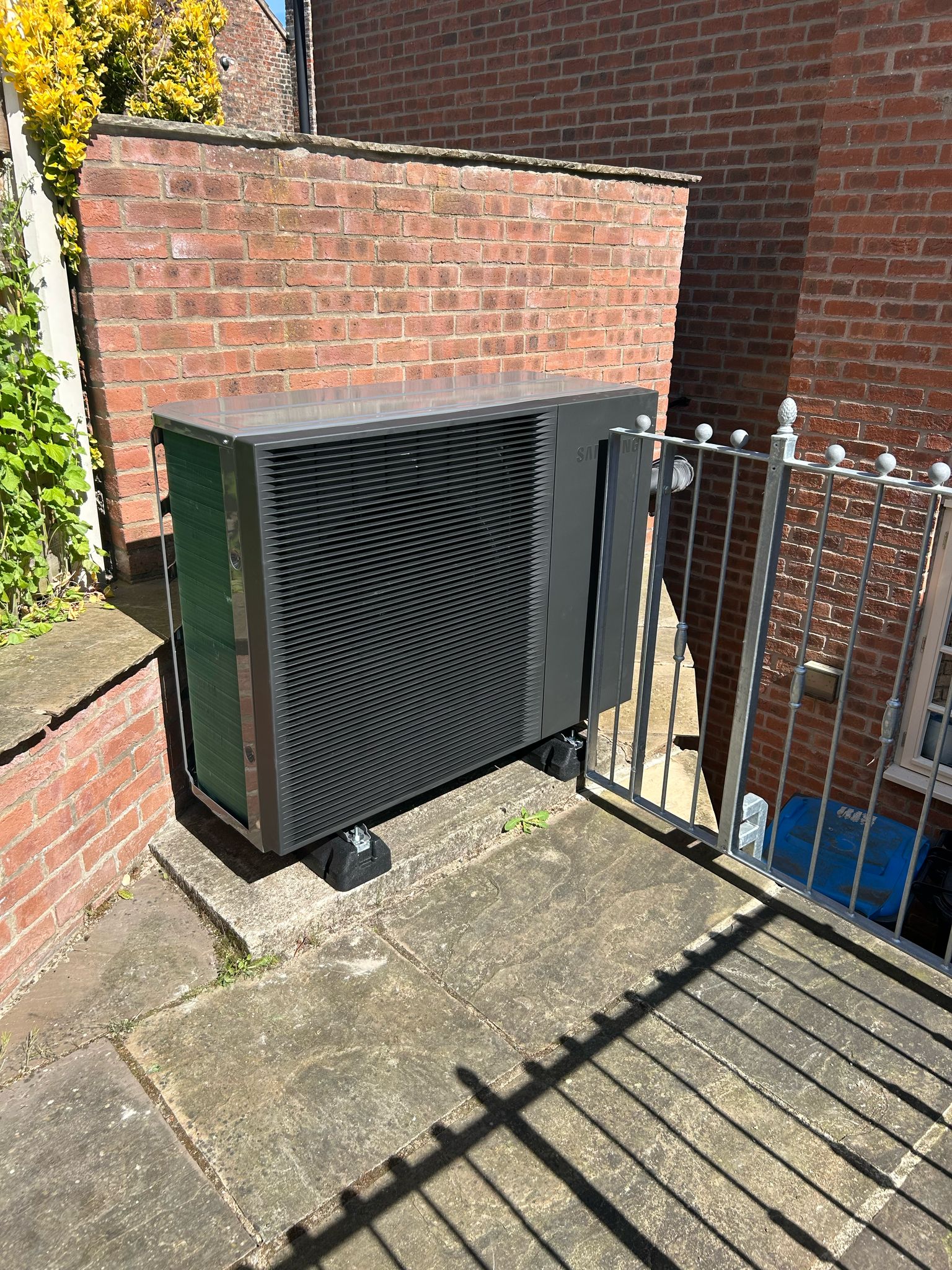
Home EV Charging vs Public Charging: Which Is Cheaper?
First thing to note before we get started, charging at home is going to be cheaper than charging on the road – always!
Just the same as eating at home is cheaper than eating at a service station … difference is the electricity at home is exactly the same stuff you get at a service station.
So, how does home charging compare to charging 'in the wild'?
Charging your EV at Home.
When you own an EV you really want to be able to charge it at home.
The cost and inconvenience of always charging on the road is a massive barrier to owning an electric car.
That said, a lot people are unaware just how expensive it can be to use external chargers.
In reality, you just want to get home of an evening, plug the car into the wall and then wake up to a fully charged vehicle.
Even better if you have solar panels and can charge during the day for free – but that would take up most of your generated electricity.
If you are charging overnight, then there are certain tariffs that will save you money.
It's worth noting that EV chargers are sometime referred to as ‘AC’ chargers, which can be confusing as your car battery will be DC.
What it means is, your EV charger has the AC to DC converter built in, so it saves using the converter in your car which is generally slower.
A wall mounted AC EV charger will fill your car’s battery up in a fraction of the time a charger you plug into a household socket will.
Normal home chargers are rated at 7 kW and will charge your car in 8 to 10 hours – faster chargers are starting to make it onto the market, but not all homes can support them.
So, how much does it cost to charge an EV at home?
A lot less than at a service station, that’s for sure.
But, how much cheaper?
Well, that all depends on when you do it, what your tariff is and whether or not you have solar.
The cost of charging an EV is easy to work out - it's the size of the battery multiplied by the amount you are paying per kWh.
For instance, the current price of electricity is around 26p per kWh, so if you have a 60-kWh battery in your car it’ll cost 60 x 0.26 to charge it.
That’s £15.60 – for a full ‘tank’!
Now, imagine you are using a flexible rate that allows you to access cheaper electricity during the night – sometimes for as little as £0.07 a kWh.
60 x 0.07 is a measly £4.20!
Charging your EV on the go.
As much as you don’t want to, you will need to charge your EV on the road occasionally.
It’s going to be a bit a bit of a lottery as to how much you pay and how fast the charging you find is going to be.
You’ll have an app for your car that will tell you the best places for your particular vehicle but you won’t always be able to get to the perfect charger.
There are also ‘general’ apps, like BP Pulse, Pod Point, and Zap-Map, that highlight all the nearby chargers, how fast they are and what they cost.
Almost all UK motorway service stations will have EV chargers and we are seeing more petrol stations offering them too.
Plus, most supermarkets, public car parks even retail outlets are all able to offer charging points of one kind or another.
These will be DC chargers for the most part, meaning they are faster than the home based version but you will be paying a premium for your energy.
And, while the chargers themselves are faster, your vehicle may have trouble keeping up!
Public Charging - Speed and Accessibility
When you are out and about the variety of chargers can be a little confusing.
Not all chargers are made equal – and it really depends where you need to grab some juice what kind of charger you'll get.
The slowest chargers are generally found in residential areas and are often connected to lampposts. These are 3kW AC chargers and will take around 18 –20 hours to charge the average EV.
Fast chargers are like the ones you’d buy for your home but can also be found in supermarkets and public car parks. They are around 7kW and you’re looking at 3 – 8 hours for a full charge – so a little longer than your average shopping trip.
Rapid chargers are 43–50 kW DC. These chargers are super-popular at retail parks and motorway service stations. They can fully charge your EV within 60–90 minutes.
Right now you’d be lucky to find a n Ultra-Rapid charger, but if you do they are 100-350 kW DC and will have you back on the road in 15–45 minutes.
These are already popping up in motorway service stations and also at dedicated charging stations.
How do you keep you EV battery healthy?
EV battery technology is coming on in leaps and bounds, but we can’t alter the laws of physics.
EVs use lithium-ion batteries.
Li-Ion batteries are great because they will handle many charges and discharges, or cycles, in their lifetime.
Solar batteries are made of the same materials and they will handle at least 6000 cycles, which is 2 a day for 10 years!
However, force charging or speed charging your EV battery can reduce its lifespan a little as it pushes the materials inside to their limit.
The healthiest way to charge an EV battery is using your home charger and doing over an 8-hour period.
The cost of charging – home vs road.
As we have already stated, it’s obviously cheaper to charge your EV at home, but we’ll just go over that again.
Working on a 60 kW EV, a home charge would be around £15 if you are using the £0.26 rate – and under a fiver if you manage to bag a 7p overnight tariff.
On the road things will be a lot more costly and, remember, these are the prices at the time of writing this blog so they will change.
A fast charge that’s available publicly will average £0.45–£0.55 per kW, so £27–£33 for a full charge – and that’ll take you 3 – 8 hours to get a full battery, so one for when you pulled up for the night or having a very long meeting.
If you’ve gone shopping at a retail park and find a rapid charger, that’ll cost £0.60–£0.80, so £36–£48 to fill up and will take about 60 - 90 minutes get back on the road.
Want it quicker? Well, you’re going to have to pay for it because Ultra-Rapid EV charger will cost you £0.75-£0.95+ per kW! That’s £45–57 to fill up, which is getting pretty close to petrol costs!
The advantage here though is you’ll be back on the road in 15 to 45 minutes … if your EV can handle the charging.
Prices will come down in the future as more and more EVs hit the road, and you can even find free charging in some council run car parks.
Batteries and the cold
You know banging the AC or heating on full in your EV can reduce your range? No? You do now!
It's not actually that much, but as we become more conscious of the energy we use it’s worth bearing in mind – maybe heat the car up on those cold mornings before you unplug the charger.
Batteries are also prone to charging more slowly when the temperature drops below zero.
This isn’t something that applies to EVs alone though, it’s any lithium-ion battery, but cars are usually outside so it’s more noticeable.
**Parasitic Draw **
Again, this isn’t a problem exclusive to EV batteries, but it is worth bearing in mind.
Parasitic draw, or vampire drain, is when peripheral actions take power from the battery.
In an EV these include everything from the aforementioned climate control, to the stereo, on-board computer and even the headlights.
These aren’t things you can avoid using, but it may be worth holding back on the car-based karaoke if you only have 10 miles of charge left but you are 9 miles from a charger.
More savings with EVs.
As well as saving money on your ‘fuel’, EVs also offer a few other cash incentives.
Firstly, a lot of workplaces offer free charging points, so if you lucky enough to get this you’re quids in.
In most cities your EV will also be exempt from any ‘emissions charges’ – although you will sometimes have to register for that exemption.
Why would you charge your EV on the road?
Charging your EV on the road is expensive but, if you use your car for long journeys, it’s almost unavoidable.
There’s also the matter of being able to install a full charging point at your home.
Not everyone has a drive of their own and not all councils will allow you to put a charger on the street.
So, if you live in a flat, or on a terrace or you just don’t have the space to install a charger, you’ll be charging where and when you can.


